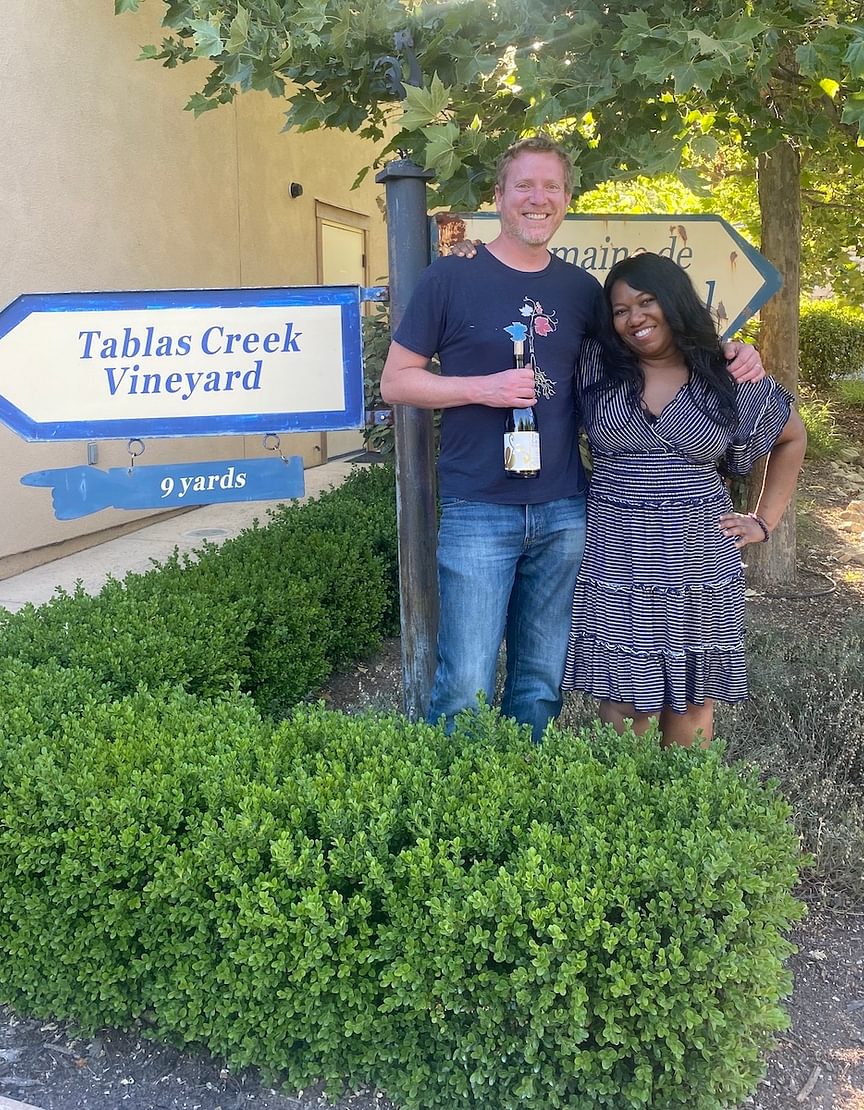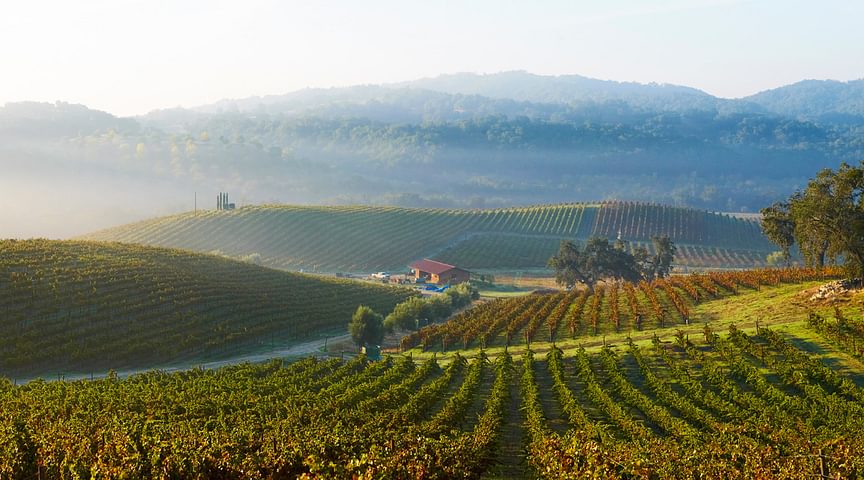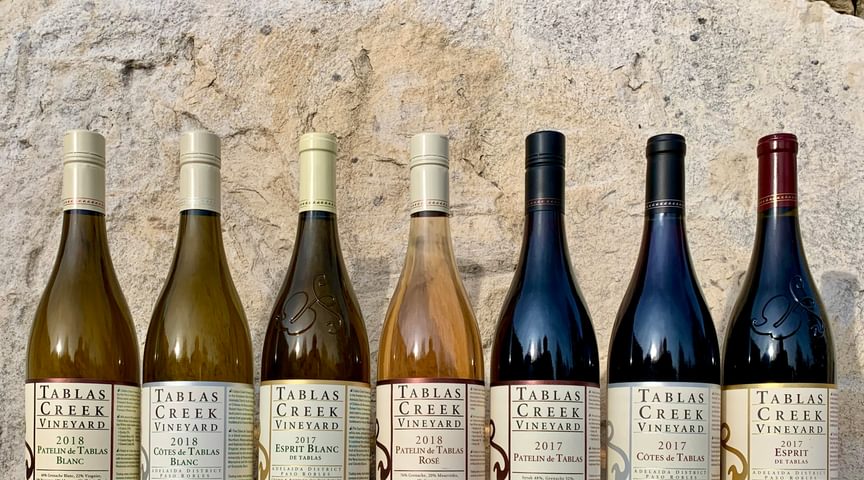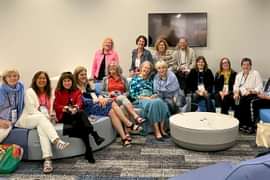
May 25, 2023
Let’s Discuss...
Wine with writer Wanda Mann ’90 and vintner Jason Haas ’91WELCOME TO ANDOVER MAGAZINE’S NEW SERIES FEATURING CONVERSATIONS BETWEEN MEMBERS OF THE ANDOVER COMMUNITY WHO SHARE A COMMON THREAD.
For Wanda Mann, wine is more than just a feel-good beverage.
“It’s a powerful link to history and culture,” says the founder and editor-in-chief of Wine With Wanda. “Wine opens up the world and has the power to bring people together.”
A revered industry expert, Mann has traveled the globe to explore the story of wine. Also the East Coast editor of The SOMM Journal, her writing has been published in Food & Wine, Decanter, and NAPA.
In this installment of Let’s Discuss, Mann is interviewed by Jason Haas, the second-generation proprietor of Tablas Creek Vineyard in Paso Robles, California. Haas learned the wine business at an early age, accompanying his father, Robert, on European wine-buying trips and spending summers working at Château de Beaucastel, a historic winery located in the southern part of France’s Rhone valley.

JH: What was your track to wine? Was wine on your family table when you were growing up?
WM: Wine wasn’t on my table because my mom wasn’t much of a drinker, but my dad was a personal chef. He grew up in North Carolina but trained in New York and learned to prepare classic French cuisine. So I always call it the foie gras and grits childhood. I had the best of both worlds because my dad made amazing North Carolina pulled pork—but don’t you ever call his beef bourguignonne “beef stew,” because you’d get in trouble for that!
It was my dad who actually bought me my first bottle of wine when I was 16 and said, “Don’t tell your mother.” Because we always had that relationship—even in my rocky teenage years when I was a bit of a handful, we could always communicate over food. My professional career in events planning led me to producing some wine tastings for a private club in New York. I was invited by one of the importers to come to a tasting on my day off.
That was back in 2010. I sat across the table from a winemaker, and I was just blown away because I had never thought of wine in that way. He’s talking about the grapes like they’re his children and he’s throwing out terms I didn’t know, like malolactic fermentation. I’m jotting it all down, thinking, “I’ll Google this later.” But it lit something in me. I started going to more wine tastings on my own, buying books, and just learning as much as I could. I was already writing at that point, but more about lifestyle, fashion, and beauty. Then I just started writing about wine.
Writing about wine is like a reflection of place and culture.
”JH: You studied anthropology in college. How does that tie into writing about wine?
WM: I can’t say I went into my anthropology major with the grand vision of what career I would have. I honestly didn’t know, but I was drawn to learning about different cultures—linguistics, religious rituals, history. All those things appealed to me, and there was writing and research involved. Writing about wine is like a reflection of place and culture. There are wines that have survived wars and families that have given everything to preserve a vineyard. Even now—you know better than anyone—each year, you’re praying to Mother Nature to please give us a good harvest. You put your all into it. So anthropology really connects to wine beautifully.
JH: Do you have a favorite region that you’d recommend wine lovers to visit?
WM: This is always a tough one! I love going to places that I’ve never been, but, through no plan of my own, Italy is the country I’ve visited the most in terms of wine—at least 20 times. Italy has been a big part of my wine education and, for someone like me who was new to wine, it was actually very approachable.
JH: And there’s close to almost 1,000 grapes that are in Italy and nowhere else!
WM: I know! Every time I go, I learn about five new grapes and I’m like, what is that? And the food is wonderful. I just think it’s an enjoyable way to really immerse yourself in a wine region.
New York City has always been entrenched in French and Italian cuisine, so those were also the wines that were just naturally a part of what we experienced.
JH: Yeah, New York was where my dad got his start. He was a retailer and importer. And his discovery of California wine, gradually in the ’70s and ’80s, was what set the stage for Tablas Creek. But even me, growing up—I was in a house surrounded mostly by French wine.

WM: Every state makes wine now. I haven’t tried all of them because the reality is, most are not distributed naturally. But when I get an opportunity to, I’m like, yeah, bring it! Virginia is doing great wines. There is Texas wine. It’s just so exciting that we really have more of a wine culture than we realize, even if it is smaller in certain pockets. But it’s there. That’s a good feeling.
JH: And I think it’s such a positive indication just for the development of America as a wine-drinking country—there is “wine country” that’s pretty close to everybody!
WM: So Jason, what are you most excited about these days?
JH: The regenerative farming piece of what we’re doing. I saw a Twitter comment recently by Blake Gray, who’s a wine writer based in San Francisco. He said something that I thought was right on, which is “at the moment, every wine story is a climate change story.” So just being involved in something that potentially shows a path by which wine—and, more broadly, agriculture—can be part of the solution to some of these challenges is inspiring.
This interview was edited from Tablas Creek’s original video on Instagram Live. Follow Wanda Mann ’90 at blackdresstraveler.com and on Instagram @winedinewanda, and visit Jason Haas ’91 at tablascreek.com and on Instagram @tablascreek.
Other Stories

Andover’s 10th conference promotes open financial dialogue




